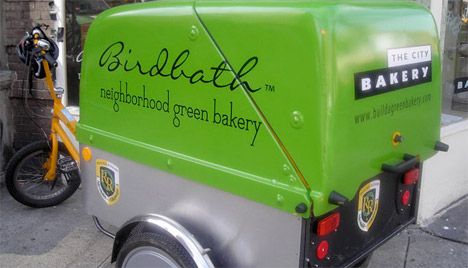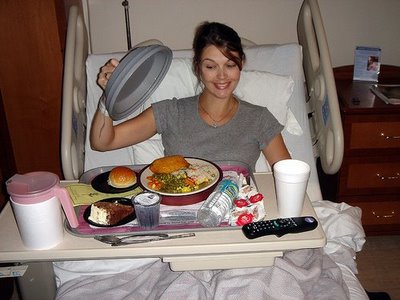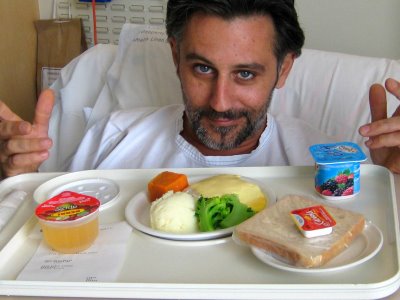On March 20, 1996, British Health Secretary Stephen Dorrell rose in the House to inform colleagues that scientists had discovered a new variant of Creutzfeldt-Jakob disease (CJD) in 10 victims, and that they could not rule out a link with consumption .jpeg) of beef from cattle with bovine spongiform encephalopathy (BSE), also known as mad cow disease.
of beef from cattle with bovine spongiform encephalopathy (BSE), also known as mad cow disease.
Overnight, the British beef market collapsed and politicians quickly learned how to enunciate bovine spongiform encephalopathy and Creutzfeldt-Jakob disease. Within days, the European Union banned exports of British beef; consumption of beef fell throughout Europe; and the tell-tale triumvirate of uncertain science, risk and politics was played out—and continues—in media headlines. Beef consumption across the European Union (EU) dropped 11 per cent in 1996, and the BSE crisis cost the EU US$2.8 billion in subsidies alone to the beef industry in the first year.
Yet the March 20, 1996 announcement, rather than the beginning of the on-going BSE crisis, as it is now commonly called, was instead the culmination of 10 years of bureaucratic mismanagement, political bravado, and a gross underestimation of the public’s capacity to deal with risk.
In response to BSE and several other food poisoning outbreaks, the Food Standards Agency was created in 2000. I may have some of the details wrong because I’m going for speed at the moment and relying on wiki, but one of the key .jpg) philosophical underpinnings of the new agency was that farming, food processing and food safety maybe shouldn’t be concentrated in one department. You hear the same thing when Washington-types talk about the need for a single food safety agency.
philosophical underpinnings of the new agency was that farming, food processing and food safety maybe shouldn’t be concentrated in one department. You hear the same thing when Washington-types talk about the need for a single food safety agency.
The Guardian reports tonight U.K. health secretary, Andrew Lansley, is to announce the abolition of the Food Standards Agency – which has fought a running battle with industry over the introduction of color-coded "traffic light" warnings for groceries, TV dinners and snacks – sparking accusations the minister has "caved in to big business."
As part of sweeping changes Lansley will reassign the FSA’s regulatory aspects – including safety and hygiene in the food chain – to the Department for Environment, Food and Rural Affairs (Defra). Meanwhile, its responsibilities for nutrition and diet advice and its public health remit will be incorporated into the Department of Health.
There’s lots of allegations about industry-pressure, and food dyes, and obesity and genetically-engineered foods, but not too much about food safety, except for a spokesman for cereal manufacturer Kellogg’s, who said,
"The FSA has done a very good job in terms of food safety and science but there was a feeling that perhaps its role was becoming far too broad.”
Whoa there. Dr Judith Hilton, Head of Microbiological Safety at the FSA, said in July 2007,
‘”The current UK advice that burgers should be cooked at 70°C for 2 minutes or .jpg) equivalent is upheld by this ACMSF report. Advice to consumers remains the same – to follow manufacturers’ instructions and make sure that burgers are piping hot throughout, cooked until the juices run clear and there’s no pink meat inside.”
equivalent is upheld by this ACMSF report. Advice to consumers remains the same – to follow manufacturers’ instructions and make sure that burgers are piping hot throughout, cooked until the juices run clear and there’s no pink meat inside.”
And I’ve made fun of the advice, because clear juices and meat color are lousy indicators of microbiological safety.
The move will lead to lots of proclamations about all things trendy for foodies, but won’t do much for food safety.
 If the goal is to be New York City’s most sustainable bakery, then why not. But sustainable is not the same as sanitary.
If the goal is to be New York City’s most sustainable bakery, then why not. But sustainable is not the same as sanitary.
 The New South Wales Food Authority
The New South Wales Food Authority Health District, primarily related to a salad bar that wasn’t keeping foods at the proper temperature.
Health District, primarily related to a salad bar that wasn’t keeping foods at the proper temperature. Breaches of food safety offences included failing to control flies and keep work surfaces clean.
Breaches of food safety offences included failing to control flies and keep work surfaces clean..jpeg) Philadelphia region requires that they be tacked up for easy viewing like a menu.
Philadelphia region requires that they be tacked up for easy viewing like a menu. And in New Jersey, Virtua Memorial Hospital in Mount Holly was rated "conditional satisfactory" after inspections in November and last month found several violations.
And in New Jersey, Virtua Memorial Hospital in Mount Holly was rated "conditional satisfactory" after inspections in November and last month found several violations. "Anybody who has a compromised immune system is going to be more susceptible to food-borne illness. And hospitals are full of people with compromised immune systems.”
"Anybody who has a compromised immune system is going to be more susceptible to food-borne illness. And hospitals are full of people with compromised immune systems.”.jpg) Phyllis Fenn, a standardization officer with the Alabama Department of Public Health’s bureau of environmental services, has seen the same thing – too often.
Phyllis Fenn, a standardization officer with the Alabama Department of Public Health’s bureau of environmental services, has seen the same thing – too often..jpeg) She said the certification class helps restaurants reduce food-related illnesses as well as teaching them about the proper temperatures to cook and hold food (the temperature of food that sits out at a buffet) and proper hygiene.
She said the certification class helps restaurants reduce food-related illnesses as well as teaching them about the proper temperatures to cook and hold food (the temperature of food that sits out at a buffet) and proper hygiene..png) Officials estimate that about 6,000 of the city’s 24,000 eateries had enough violation points in June to have earned the lowest mark on a three-letter rating scale devised by the city.
Officials estimate that about 6,000 of the city’s 24,000 eateries had enough violation points in June to have earned the lowest mark on a three-letter rating scale devised by the city..jpg) The Dallas Morning News reports this morning
The Dallas Morning News reports this morning
.jpeg) of beef from cattle with bovine spongiform encephalopathy (BSE), also known as mad cow disease.
of beef from cattle with bovine spongiform encephalopathy (BSE), also known as mad cow disease..jpg) philosophical underpinnings of the new agency was that farming, food processing and food safety maybe shouldn’t be concentrated in one department. You hear the same thing when Washington-types talk about the need for a single food safety agency.
philosophical underpinnings of the new agency was that farming, food processing and food safety maybe shouldn’t be concentrated in one department. You hear the same thing when Washington-types talk about the need for a single food safety agency..jpg) equivalent is upheld by this ACMSF report. Advice to consumers remains the same – to follow manufacturers’ instructions and make sure that burgers are piping hot throughout, cooked until the juices run clear and there’s no pink meat inside.”
equivalent is upheld by this ACMSF report. Advice to consumers remains the same – to follow manufacturers’ instructions and make sure that burgers are piping hot throughout, cooked until the juices run clear and there’s no pink meat inside.”